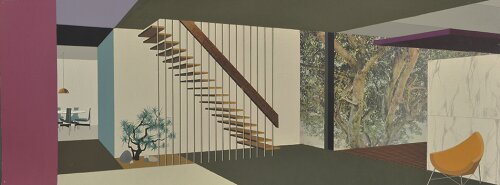The emergence of interior architecture in Belgium, 1945-1999. Assessing the impact of education on the identity formation of the design discipline.
Promotor: Els De Vos
Partners: Benoît Vandevoort (KU Leuven), Fredie Floré (KU Leuven)
Funder: Research Foundation Flanders (FWO)
In many Western countries, the field of interior architecture is characterised by an on-going identity crisis. The confusion becomes apparent via the diverse nomenclature: interior architecture, interior design and interior decoration. Furthermore, the discipline was often (and still is) perceived as feminine and amateurish. Attempts to correct this image have significantly characterised the professionalisation of interior design since World War II. This is particularly noticeable in the field of education. Contemporary interior design courses are still challenged to define themselves and to address their gendered image. Vocational courses have now achieved academic status, but in which ways did it change the identity of the profession?
In this regard, the case of Belgium is peculiar. With its diverse educational landscape, the programmes of interior architecture are rooted in different traditions: the Beaux-Arts tradition and Arts & Crafts. How did interior design evolve in relation to these distinct educational branches? To address this, the project – a joint FWO research project (project code: OZ8457) between UAntwerpen and KU Leuven – aims to develop detailed genealogies of a representative selection of interior design courses up until 1999, the year of the Bologna Declaration. Furthermore, a new method will be elaborated and refined for assessing the role of education in the identity formation of interior design. This method will also provide a thematic framework for international comparative research.

Want to know more?
See Sam's personal page for more information, contact links and publications!